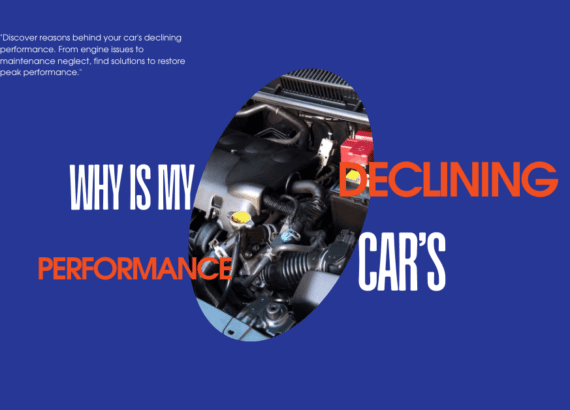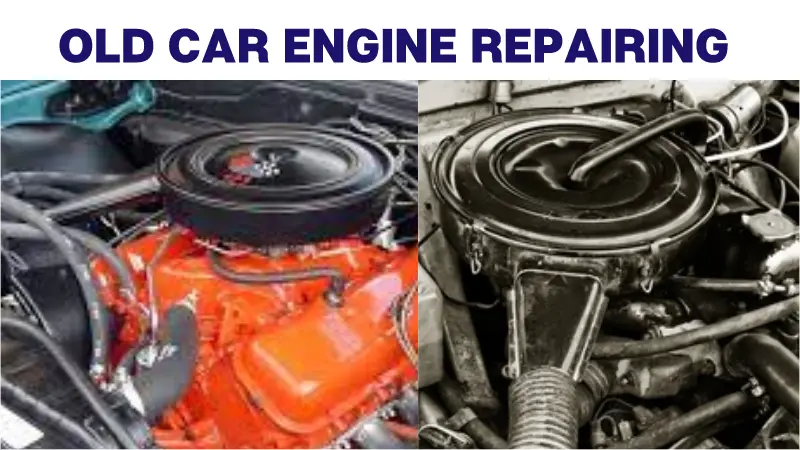How Important Is Regular Maintenance For A Diesel Truck?

In the world of diesel trucks, the mantra “an ounce of preventative maintenance is worth a pound of cure” holds unparalleled truth. Having grown up around these robust machines. I’ve witnessed first-hand how properly cared for diesel engines can surpass the hundreds of thousands of miles mark. Truly embodying their legendary lifespan. It’s not merely about keeping the truck on the road but ensuring its safe operation every mile of the way.
Maintenance is not just another task; it’s essential for anyone looking to extract the full benefit from their vehicle. By adhering to a planned maintenance schedule, you significantly reduce the likelihood of facing unexpected breakdowns and, subsequently, costly repairs. The goal is to have a diesel truck that doesn’t just run but thrives, even under the most demanding conditions. This approach not only saves money in the long run but also ensures that every journey is as safe and smooth as possible.
Why is preventative maintenance important?
In my years of experience managing a fleet for a burgeoning business. I’ve come to learn the heart of keeping trucks moving isn’t just about solving problems when they arise but preventing them from happening in the first place. Regular maintenance of a diesel truck isn’t just a good practice; it’s a cornerstone for ensuring safety on the road, both for drivers and pedestrians. Engine components need consistent attention; without it, you’re looking at engine malfunctions that can lead not only to costly major repairs but can also pose dangerous situations.
Taking preventative maintenance seriously means tackling engine issues before they escalate into major problems. Thereby drastically reducing downtime and keeping your business on its feet. By applying the right maintenance measures, such as regular cleaning and updating essential parts. You not only save time but also money in the long run. Trucks that receive proper care can expect an Increased lifespan—we’re talking about adding years to your motor’s life and maintaining peak performance. This approach has undoubtedly saved my fleet from unexpected problems that could have led to engine malfunction. Proving that investing a little in maintenance can reduce costs significantly over time.
Moreover, maintaining a reliable diesel engine through regular maintenance secures a reduced likelihood of downtime. Allowing motorists to have a smoother and safer experience. This strategy goes beyond just keeping your engine running; it underlines a commitment to safety and reliability that benefits everyone on the road. It’s about more than just avoiding costly repairs; it’s about ensuring that every time you start that engine, you’re confident it operates efficiently and safely, safeguarding your investment and, more importantly, people’s lives.
A Poorly Running Diesel Truck Will Cost You More
Drawing from years of personal experience and a deep-seated understanding of diesel engines. It’s crystal clear that neglecting maintenance can lead to a poorly running diesel truck which, in turn, will cost you more in the long run. The secret sauce to preventing damage to engine parts, combating overheating, and avoiding the accumulation of sludge is adopting a routine maintenance schedule. Diesel trucks are designed to last between 500,000-800,000 miles, serving as a testament to their reliability and durability. However, this longevity primarily hinges on how well they’re maintained.
Unlike their gasoline engine counterparts, diesel trucks rely on compression to ignite the fuel, placing significant emphasis on the condition of seals, fuel injectors, and engine oil to a hot. A well-maintained fleet can drastically save money on costly repairs down the line. Regular service—as suggested by the manufacturer—should include routinely changing oil, filters, inspecting for leakage, and ensuring lubricants are replenished to prevent wear and tear. The investment in a solid maintenance plan ensures that your truck doesn’t suffer from compromised performance due to sludge buildup or overheating.
Particularly for those pushing their trucks to perform intensive type of work at high speeds. Paying attention to maintenance can mean the difference between a diesel engine. That runs efficiently versus one plagued by problems like seals cracking. Engaging in daily inspections and abiding by regularly scheduled service intervals not only guards against premature damage but essentially underpins the operational base of your diesel truck. Leveraging my expertise, it’s apparent that the rigors diesel engines are subjected to—especially in demanding conditions—amplify the need for routine maintenance to ensure they combust effectively and maintain peak performance.
Investing time and resources into maintaining your diesel truck. Guided by All Bay Diesel’s recommendations, does more than just seal the deal for a reliable fleet; it secures an enduring legacy for your investment, proving that a stitch in time indeed saves nine.
Routine Maintenance For Diesel Trucks

When it comes to diesel trucks, performing routine maintenance is akin to ensuring a long. Prosperous relationship between you and your vehicle. Having spent decades working on these robust machines. I’ve come to appreciate that a smoothly running machine is a testament to regular maintenance. This includes complete inspection of all moving parts, especially the seals, which are critical to the truck’s operation. Without diligent care, even the most stalwart diesel truck can falter, emphasizing the importance of keeping a close eye on every aspect of your vehicle to keep it running smoothly.
Fuel Filters
The fuel filters play an unsung hero’s role in the longevity and performance of diesel engines. These filters trap microscopic debris and impurities, preventing them from getting into the combustion chamber where they could affect performance detrimentally or damage sensitive engine parts. It’s recommended to change these filters every so often to remove any dirty buildup; failing to do so puts your engine at risk. Remember, seals within the engine are also protected by clean fuel. So regularly changing your fuel filters is a two-fold defense strategy.
Fuel Injection
The fuel injection system necessitates precision to maintain the optimal fuel pressure needed for your truck’s motor type. With injectors numbering anywhere from four to eight, depending on the engine, it’s crucial to keep them free from water, impurities, and debris. The cost of neglect can range from $350-$850 per injector, a significant expense that routine checks can mitigate. Given that these injectors operate at up to 36,000 PSI, even minor damage can have major repercussions.
Engine Cleaning
An important step in keeping diesel trucks running smoothly and efficiently is engine cleaning. This aspect of routine maintenance helps in maintaining your truck’s health. Including keeping the engine free from contaminants that can hinder its performance. Cleaning not only assists in maintaining the engine’s output but also in prolonging the life of the vehicle.
Exhaust System
The exhaust system of a diesel truck has two functions: removing toxic chemicals from the vehicle’s interior and ensuring the environment remains uncontaminated. Rust can compromise these crucial components, making a complete inspection a necessary part of routine maintenance. This system performs a vital role in keeping your truck running smoothly. Illustrating how interconnected maintenance aspects are in ensuring the vehicle’s overall health.
Cooling System
The cooling system of diesel engines plays a pivotal role in managing the intense heat these engines produce. This closed-loop system, often jacket-type in diesel trucks, absorbs the excess heat, preventing engine components from cracking or. In the worst-case scenario, a fatal engine break due to higher temperatures. Considering diesel trucks are often exposed to leading and running at higher temperatures. Maintaining the cooling system is fundamental to their longevity.
Your Diesel Truck Brakes
Lastly, your diesel truck brakes are your first line of defense against accidents. Subject to wear and tear, they require you to replace worn pads, flush out old brake fluids, and determine the maintenance required for your braking system. Routine maintenance for your brakes isn’t just necessary; it’s liable to be the difference in safety for both your employees and civilians on the road. After all, trucks often traverse the worst conditions — from extreme temperatures to rough roads laden with mud — making a routine maintenance plan essential.
Given the complexity and the importance of each component. It’s clear that regular maintenance for a diesel truck isn’t just about prolonging its life but ensuring its safety, efficiency, and reliability on the road
Preventative Maintenance Tips for Your Truck

Diligently following maintenance tips can drastically reduce the need for expensive repairs down the line. From my experience, setting a routine where you periodically inspect and service your truck can significantly extend its lifespan and keep it running smoothly.
Keep Things Clean
One of the most crucial, yet often overlooked, aspects of maintenance is keeping your truck clean. Dust, contaminants, and soot can quickly accumulate, leading to grime build-up on engine components. I learned early on that regularly removing this accumulation not only keeps my truck looking good but also operating properly. Whether you’re on a long travel or just around town, making an effort to keep the truck’s body and engine clean is essential.
Check the Fluids
Another key factor in maintaining a healthy diesel truck is to regularly check and maintain the fluids. Engine oil and coolant levels are vital to prevent overheating and excessive wear. I’ve witnessed trucks go from optimal to poor performance simply because the fluids weren’t kept clean, or there wasn’t a sufficient supply. Always be on the lookout for signs of contamination or leaks. As these can lead to significant issues down the road.
Change the Filters
The Diesel Particle Filters (DPFs) and Oil Filters play a pivotal role in keeping your truck’s exhaust system and engine clean of contaminants. Neglect here can cause engine damage. Therefore, It’s vital to ensure these filters are changed regularly. Not only does it remove particulates that can hamper performance, but it also keeps the engine healthy by preventing potential contaminants from causing harm.
Be proactive
Lastly, being proactive about maintenance, especially regarding DPFs and oil changes, cannot be overstated. Ensure that these components are clean and changed regularly to avoid contaminants that can cause engine damage. Doing so can significantly reduce the risk of costly repairs and maintain the health of your truck’s engine and exhaust system.
Through years of hands-on experience and dedication to preventative maintenance, I’ve seen firsthand how these practices can keep a diesel truck running at its peak. It’s about more than just making it through the next haul; it’s about ensuring that your truck can reliably get you where you need to go, day in and day out.
Conclusion
Regular maintenance for diesel trucks is a key component to ensure their safety, efficiency, and longevity. Proper care includes routine checks and replacements, such as oil and filter changes, which safeguard against common issues like engine clogging and overheating. Adhering to a strict maintenance schedule ultimately leads to cost savings and optimized performance, making it a crucial investment for diesel truck owners.
FAQs
Do diesel trucks need to be driven regularly?
Regular driving of diesel trucks on the highway for extended miles not only showcases the engine design’s benefit but also prevents clogging of the engine’s particulate filter, common in short-distance, low-speed, city driving. This practice boosts increased fuel economy and reduces the need for additional maintenance, proving that diesel engines truly shine when regularly put to the log. My journey and expertise underline the importance of this routine for maintaining the truck’s performance and health.
What maintenance does a diesel truck need?
Driving diesel trucks on the highway for extended miles showcases the engine design’s benefit of increased fuel economy and prevents clogging of the engine’s particulate filter from short-distance, low-speed, city driving. This routine reduces additional maintenance, proving that diesel engines truly shine and remain efficient when regularly put to the log.
Does a diesel engine require more maintenance?
In my journey through the world of diesel engines, it’s clear they demand more attention due to their complex systems. Unlike their gasoline counterparts, diesel engines not only require more maintenance but also have parts with a higher price tag, contributing to expensive maintenance costs. This means regular care and timely repair work become crucial to counteract the inherent complexities and costs.
How often should you service a diesel engine?
In my experience with Beachwheels, diesel vehicle owners should service their engines every 10,000 km or 5,000 km for heavy use, with older diesel vehicles requiring servicing more often, ideally every three to six months or when hitting the mileage mark, to ensure they’re professionally serviced for optimal performance. This regular maintenance is crucial for all diesel vehicles, sustaining their life and efficiency on the road.











